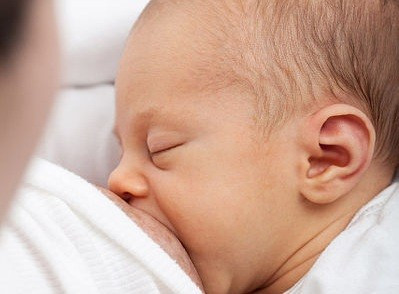Breastfeeding in First Hour after Birth ‘Could Save 830,000 Lives Every Year’
Mother's milk for newborn immediately after birth boosts baby’s immune system, says Save the Children

If all mothers fed their babies within an hour of giving birth, almost one million lives could be saved every year.
Save the Children has said the lives of 95 children could be saved every hour, or 830,000 every year, if mothers breastfed in the first hour after birth.
According to the charity's report, Superfood for Babies, immediate breastfeeding kickstarts the baby's immune system, making them three times more likely to survive.
Breastfeeding for the first six months also makes babies from developing countries 15 times less likely to die from fatal diseases such as pneumonia and diarrhoea.
Save the Children said global breastfeeding rates were falling in some areas of Africa and east Asia. In Asia the number of breastfeeding mothers fell from 45 percent in 2006 to 29 percent in 2012.
It said that a severe shortage of health workers and "inappropriate"marketing techniques by baby milk substitute companies are said to be responsible for the drop. Some companies maintain that formula milk is the best way to feed their baby.
The charity said that traditional practices were also causing a decline in breastfeeding - in some places newborns are fed coffee, shea butter or ash for the first hour of their lives instead of colostrum from their mother's breast.
Justin Forsyth, chief executive of Save the Children, said: "Despite the benefits of breastfeeding being widely known in the developed world, and it being a free, natural way to protect a newborn baby, too little attention is being paid to help mums breastfeed in poorer countries."
Formula milk inferior
Research by the charity showed that many health workers and new mothers were given formula samples and gifts such as prescription pads, calendars and pens by breast milk substitute companies
As a result, Save the Children said breast milk substitute companies should make health warnings more prominent. The charity has launched a petition to get the two biggest formula suppliers, Nestle and Danone, to agree to include warnings on their packaging.
It also called for world leaders to increase funding to tackle malnutrition and encourage breastfeeding through training more health workers in developing countries.
Forsyth said: "The world is at tipping point and we could be the generation to stop children dying from preventable disease and malnutrition. This year's G8, with the UK in the driving seat, is a once-in-a-lifetime opportunity to focus effort on a final push to end hunger."
The World Health Organisation and Unicef said that all infants should be exclusively fed on breast milk for the first six months of their life.
They said breastfeeding should continue until the child is at least two years old and that if the mother is unable, the baby should be fed with breast milk from a cup, a wet nurse or a milk bank.
© Copyright IBTimes 2025. All rights reserved.






















